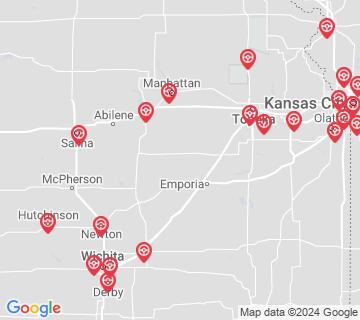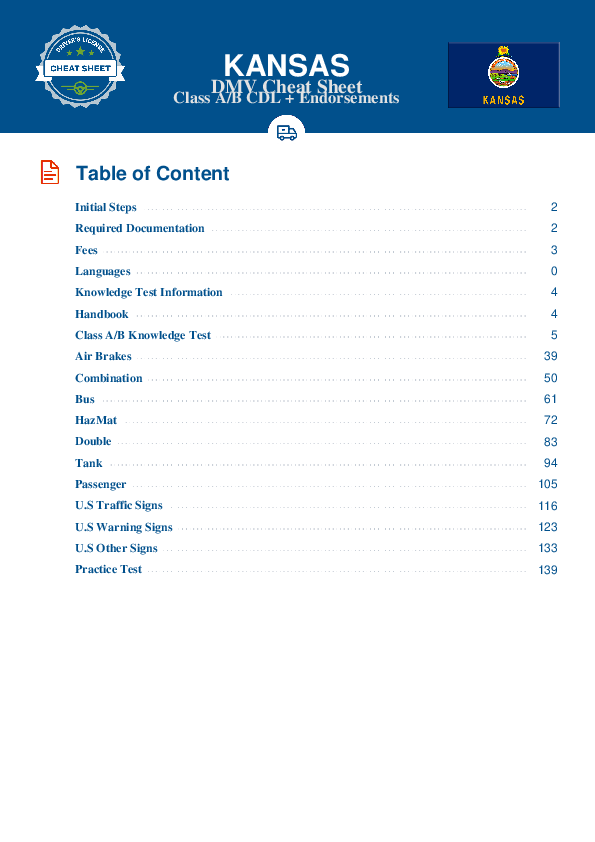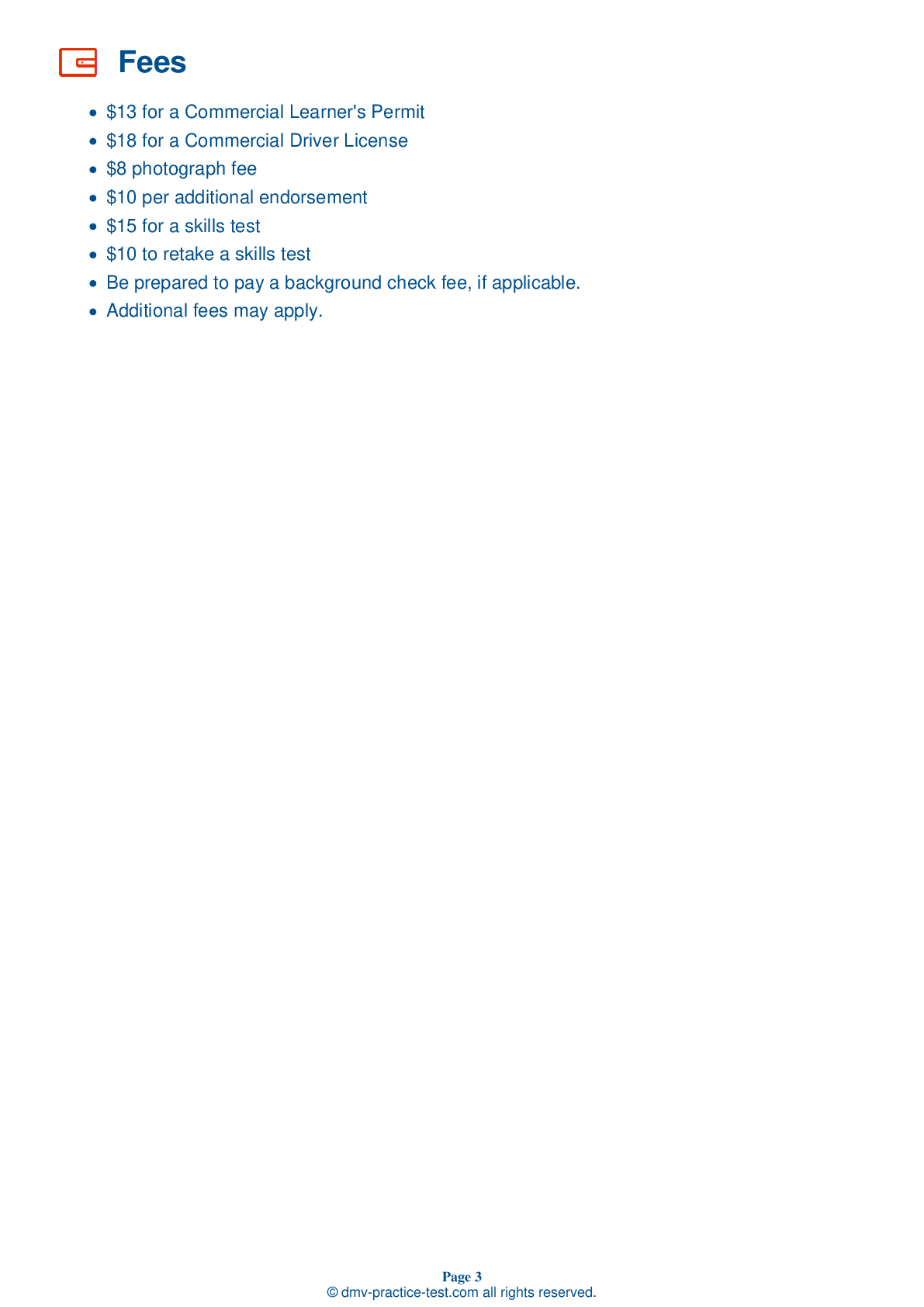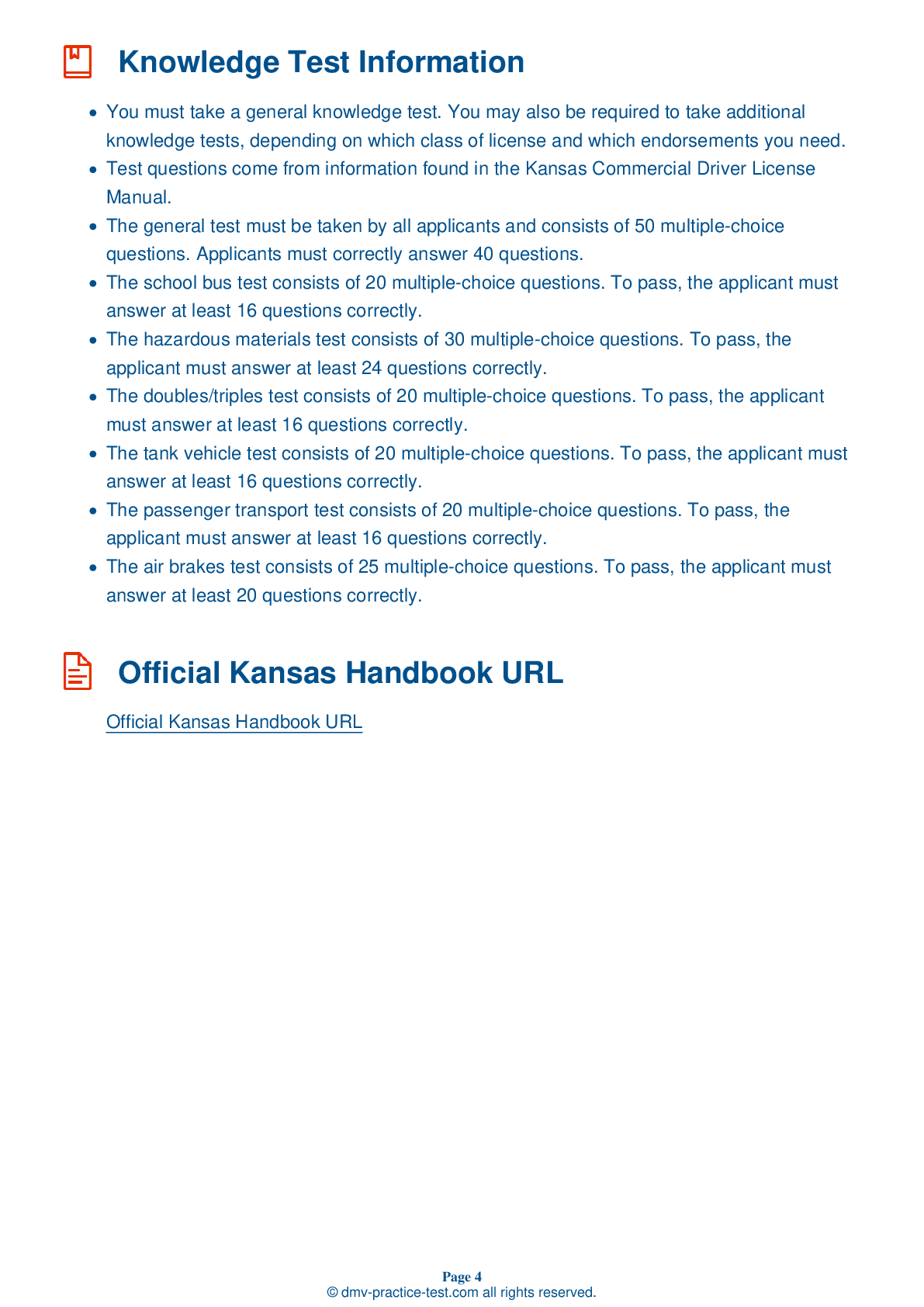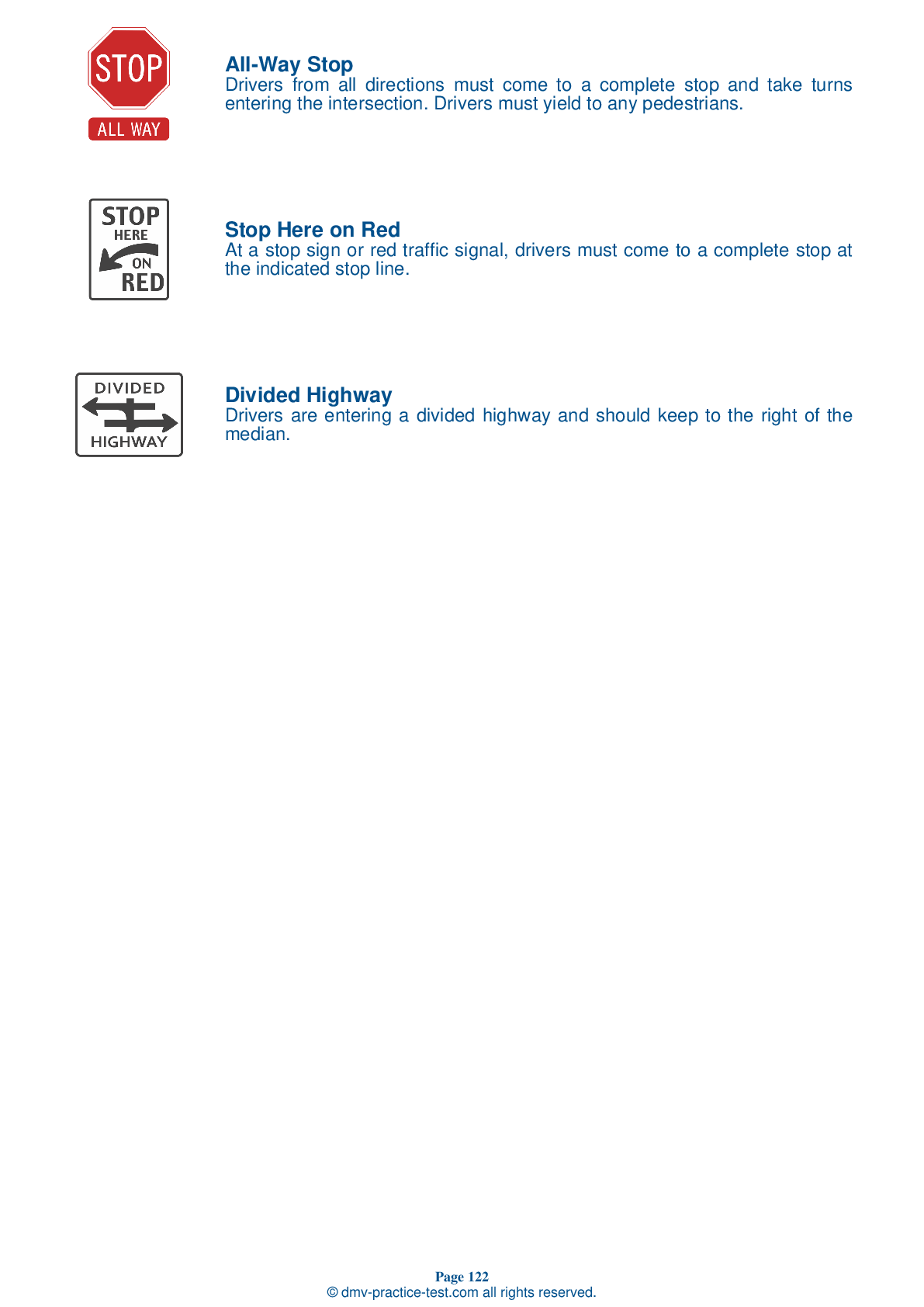Knowledge Test Class A #2
Class A Driving Test | Kansas 2026 #2 Page 5 of 7
Train for FREE online with our Kansas class A license test. The official exam test consists of several obligatory parts, with all of them checking your knowledge of different blocks of road rules. If you need to obtain a KS CDL class A permit in 2026, practice as much as possible. Free sample tests published on our website will help you check and improve your knowledge and boost your grades. Please bear in mind that CDL class A requirements may vary from state to state.
50
40
20
29 . On a truck with air brakes, the braking system’s air compressor:
Cleans the brakes.
In an air brake system, the air compressor pumps air into the air storage tanks. The air compressor is controlled by the air compressor governor.
30 . During the vehicle inspection portion of the skills test, an applicant will be required to:
Take apart the front brake.
During the vehicle inspection skills test, you will need to explain to the examiner what you are inspecting and why.
31 . A truck may need to be under the legal maximum weight limit when being driven:
At night.
Under some driving conditions, it may not be safe to operate a vehicle at its full legal maximum weight. Keep this in mind when driving in poor weather or on mountainous roadways.
32 . Failing to exit your vehicle properly during an exercise in the basic vehicle control skills test will result in:
An extra point against your score.
When exiting your vehicle during the basic vehicle control skills test, you must face the vehicle and maintain three points of contact at all times. If your testing vehicle is a bus, you must maintain contact with the handrail. Exiting the vehicle incorrectly may result in automatic failure of the basic control skills test.
33 . Once stopped as a part of the stop/start maneuver, you should:
Park in front of a fire hydrant.
Once you have stopped as a part of the stop/start maneuver during the on-road driving skills test, you must activate your four-way flashers and shift into neutral or park. You must not block any driveways, intersections, fire hydrants, or signs.
34 . If you are being tailgated, you should:
Allow the vehicle to pass.
If you are being tailgated, it is best to allow more room to open up in front of your vehicle. This will help you avoid the need for sudden stops, which could result in the tailgater rear-ending you, and will make it easier for the tailgater to pass. Speeding up may only make things more dangerous by prompting the other driver to continue tailgating you at a higher speed.
35 . If feeling sleepy while driving, you should:
Take an energy pill.
If you begin to feel sleepy while driving, the only safe response is to stop driving and get some sleep. Attempting to fight off exhaustion is dangerous and a major cause of fatal crashes. Stimulants are not a safe solution because they may help keep you awake but will not make you more alert. Once stimulants wear off, you will be even more tired than you were originally.
Search the best driving school in your neighbourhood
2026 Kansas | Frequently Asked Questions
A CDL Class A license in Kansas is defined as a commercial driver's license that permits the holder to operate any combination of vehicles with a gross vehicle weight rating (GVWR) of 26,001 lbs or more, given that the GVWR of the vehicle(s) being towed is over 10,000 lbs. This typically includes tractor-trailer combinations.
A Class A CDL license in Kansas allows the holder to operate tractor-trailers, truck and trailer combinations, tank vehicles, livestock carriers, and flatbeds. It's also required for driving any combination of vehicles with a Gross Vehicle Weight Rating (GVWR) of 26,001 lbs or more, where the towed vehicle is over 10,000 lbs.
To obtain a Class A CDL license in Kansas, you must be at least 18 years old (21 for interstate driving), possess a valid Kansas driver's license, pass a vision test, and complete a medical examination. You'll also need to pass written knowledge tests and skills tests, which include a pre-trip vehicle inspection, a basic vehicle control test, and an on-road driving exam.
In Kansas, you must be at least 18 years old to qualify for a Class A Commercial Driver's License (CDL) for intrastate driving (within Kansas only). However, you must be at least 21 years old if you plan to drive commercially across state lines (interstate driving).
Specific endorsements are not required for a Class A CDL license in Kansas, but they can enhance your driving privileges. For instance, endorsements for tanker vehicles (N), passenger vehicles (P), school buses (S), and hazardous materials (H) allow you to operate specialized vehicles. To get these endorsements, you must pass additional written and skills tests.
The Class A CDL skills test in Kansas encompasses three parts: a pre-trip inspection, a basic vehicle control test, and an on-road driving test. The tests assess your ability to inspect your vehicle before trips, control the vehicle in various situations, and drive safely in traffic. You must pass all three parts to get your Class A CDL license.
Yes, there can be limitations for Class A CDL license holders in Kansas. These are often referred to as restrictions and may include: not being able to operate a vehicle with air brakes (L restriction), only operating automatic transmission vehicles (E restriction), or only driving within Kansas (K restriction). These restrictions depend on the driver's skills and the type of vehicle used during the test.
In Kansas, the written Class A CDL test is primarily administered in English, as federal regulations require all commercial drivers to read and speak English sufficiently to converse with the general public, understand highway traffic signs and signals, and respond to official inquiries. However, it's best to contact your local DMV office for any language accommodations.
Yes, individuals with disabilities can request accommodations for the Class A CDL written test in Kansas. The Kansas Department of Revenue, Division of Vehicles is committed to providing equal access to its services. If you have a disability and need an accommodation, contact your local DMV office to discuss available options and requirements.
If you fail the Class A CDL written test in Kansas, you're allowed to retake it. However, you must wait until the next business day to do so. There's no limit on the number of times you can retake the test, but each attempt requires a new testing fee. It's advisable to study thoroughly before reattempting.
